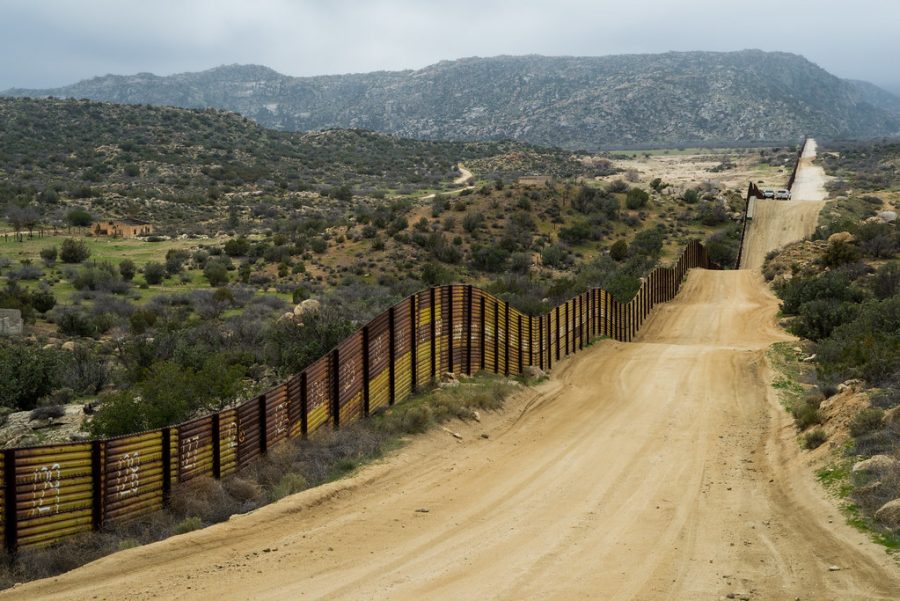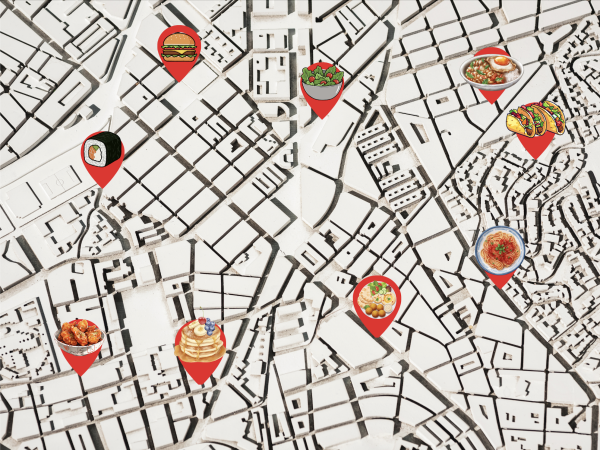Biden Administration grapples with increase in immigration in ruling mirroring Trump-era
February 25, 2023
The Biden Administration is taking a controversial step to manage migration at the U.S.-Mexico border with their strictest ruling so far to entice immigrants to come to the U.S. legally.
Among many changes, the new ruling would deny asylum to migrants arriving at the border without previously seeking and being denied protection from countries they traveled through to get there. Migrants from Mexico are also going to be required to schedule an appointment at the border using the CBP One mobile app to reduce wait times at entry points.
The new requirements will be waived for individuals experiencing medical emergencies, are at risk for murder, rape, kidnapping or are victims of human trafficking. Children traveling alone will also be exempt.
Though these changes do not entirely bar migrants from crossing the border for anyone who has to pass through a country to get to the U.S., this move will likely curb tens of thousands of migrants from seeking asylum if they are from countries other than Mexico.
Former President Donald Trump had tried to enlist similar restrictions on migrants at the border during his presidency, but the restrictions were denied by the federal court. This ruling is likely to face legal challenges as well and has already received scrutiny from civil rights organizations like the American Civil Liberties Union (ACLU).
The White House released a statement on the matter, stating that this ruling will “increase security at the border and reduce the number of individuals crossing unlawfully between ports of entry.” The statement continued, “These measures will expand and expedite legal pathways for orderly migration and result in new consequences for those who fail to use those legal pathways.”
A presidential aide also stated that evoking this law wasn’t their first preference, and that “these temporary measures are being taken out of necessity.”
Many activists are concerned that this move is too strict in limiting the number of asylum seekers that the U.S. will take in and are prepared to fight it. Lee Gelernt, an ACLU attorney, said, “We successfully sued to block the Trump transit ban and will sue again if the Biden Administration goes through with its plan.” Advocates also are concerned that this ruling will require migrants to apply and wait for asylum from their home countries, many of which are not safe.
The ruling will also allow 30,000 migrants a month to immigrate from Venezuela, Haiti, Nicaragua and Cuba who have U.S. sponsors and successfully pass background checks. But many activists are concerned that there simply aren’t enough sponsors and that the people from these countries, many of which are politically corrupt or facing humanitarian crises, cannot wait for the approval.
The Biden Administration is racing against the clock as pandemic restrictions related to migration known as Title 42 are anticipated to end on May 11. The Title 42 public health order was put into effect at the beginning of the pandemic in 2020 by the CDC. This allows the U.S. to regulate border crossings to combat the spread of communicable diseases, primarily COVID-19, which gives border patrol agents the ability to remove migrants from the U.S. if they arrived from a country with high levels of disease. Throughout the COVID-19 pandemic, most countries in the world had very high levels of infection, though most expulsions through Title 42 happened to Mexicans. According to U.S. Customs and Border Protection, there have been over two million migrants removed from the U.S. under the guise of Title 42 since the pandemic started in 2020.
The implementation of the new U.S.-Mexico border restrictions is an attempt to manage the foreseeable increase of illegal immigration after the ability to expel migrants using Title 42 comes to an end. These restrictions will not go into effect for another 30 days and will have to be reviewed again before being implemented for a temporary span of two years, though it will have the ability to be extended after its duration.
This new ruling will also send additional personnel to the border, $23 million to Mexico and Central America for additional aid and hopes to expedite asylum application processing among other aids, but many activists still worry that it will do more harm than good.












